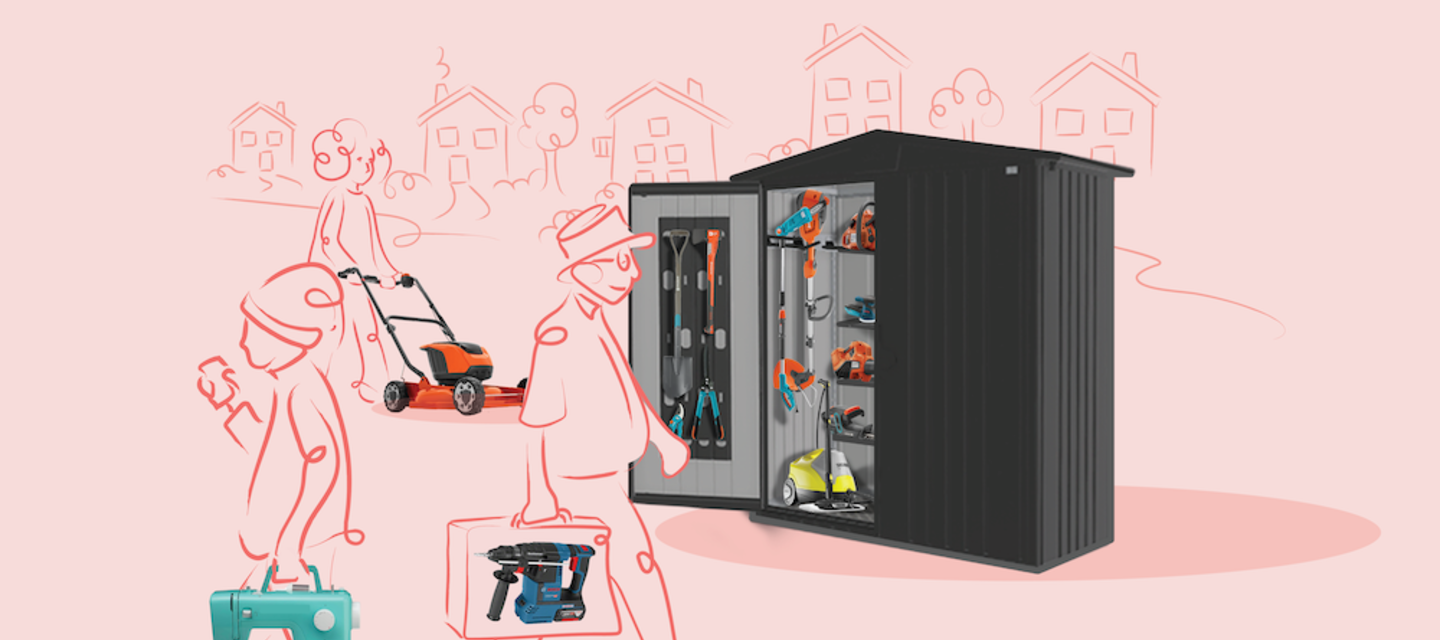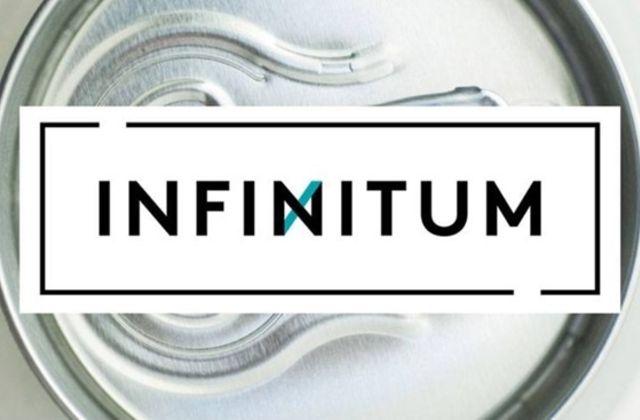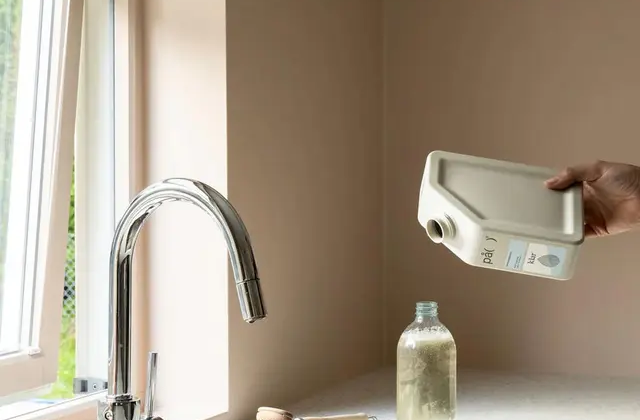Energy using appliances, Consumer goods
What is it? ihopa offers neighbourhood sharing boxes for tools for different purposes (e.g., kitchen tools, bicycle repair, crafts). The toolboxes can be accessed by locals who take out an item and return it when no longer needed. ihopa offers boxes for neighbourhood associations specifically or for the broader general public.
Why is this important? Every good that is produced requires the input of precious resources, including energy and water, and also creates waste in the process. The continuous consumption and use of resources means that many societies consume resources at a quicker rate than they can be renewed by the planet. Sweden, as a high-income country, has a high rate of consumption and demand for new resources, meaning that they consume at a rate that would require four planet Earths (Earth Overshoot Day, 2022). Sharing items might lower demand to buy new while increasing the use of the existing item throughout its lifetime.
Main resource strategy: Narrowing the loop by enabling higher use rates of items through renting them out rather than individuals buying them.
Other resource strategies: Slowing the loop through renting out high-quality goods and maintaining them to keep them in use for longer.
Business model aspects:
- Value Proposition: ihopa offers neighbourhood toolboxes that can be shared by either selected members of a neighbourhood association or be open to sharing with the general public (ihopa, 2022c). Currently, the company focuses on customers in Sweden, specifically offering boxes in the Stockholm area. They market their boxes to real estate, building owner associations and commerce, such as shopping malls (ihopa, 2022a).
- Value Creation & Delivery: Working together with manufacturers like Husqvarna (Sting, 2021a), ihopa’s neighbourhood boxes are filled with a range of equipment from known brands with high quality, long-lasting products (ihopa, 2022a).
- Value Capture: ihopa charges monthly access fees to members of a neighbourhood box. Customers pay depending on the items they sign up for, with access to different tools through a ‘home package’ compared to the ‘Kitchen package’ or ‘Fun package’ (ihopa, 2022b).
Strategies for degrowth/ sufficiency (based on sufficiency strategies from Niessen & Bocken, 2021):
- No ownership: Through offering neighbourhood boxes to Swedish neighbourhoods, ihopa facilitates the use of items without owning them.
Business model experimentation practices: Initially, ihopa offered a platform to facilitate the co-buying and –owning of items. In spring 2021, they then launched the concept of neighbourhood boxes, together with tool manufacturer Husqvarna (Sting, 2021a). As of June 2021, ihopa had launched ten neighbourhood boxes in the larger Stockholm area (Sting, 2021b).
Sustainability outcomes: ihopa estimates that if 20 people use an item in their neighbourhood boxes in a year, it would suffice if two of these were deterred from buying a new item. By only stopping two people users from buying this item anew, ihopa expects an emission saving of around 50% (ihopa, 2022b).
Sources:
ihopa (2022a). Business partners. Accessed 8 February 2022 at: https://go.ihopa.com/partner/
ihopa (2022b). ihopa. Accessed 8 February 2022 at: https://www.ihopa.com/
ihopa (2022c). Grannbox BRF. Accessed 8 February 2022 at: https://www.ihopa.com/brf
***
About project Circular X
Project Circular X is about ‘Experimentation with Circular Service Business Models’. It is an ambitious research project funded by the European Research Council (ERC) which supports top researchers from anywhere in the world. Project CIRCULAR X runs from 2020-2025. The project is led by Principal Investigator (PI) Prof Dr Nancy Bocken, who is joined by a multidisciplinary team of researchers at Maastricht Sustainability Institute (MSI), Maastricht School of Business and Economics, Maastricht University. The project cooperates with businesses who want to innovate towards the circular economy.
Project Circular X addresses a new and urgent issue: experimentation with circular service business models (CSBMs). Examples of such new business models include companies shifting from selling products to selling services and introducing lifelong warrantees to extend product lifetimes. However, CSBMs are far from mainstream and research focused on experimentation is little understood. The research aims to conduct interdisciplinary research with 4 objectives:
- Advancing understanding of CSBMs; their emergence and impacts
- Advancing knowledge on CSBM experimentation
- Developing CSBM experimentation tools
- Designing and deploying CSBM experimentation labs
Funding source
This project has received funding from the European Research Council (ERC) under the European Union’s Horizon 2020 research and innovation programme, grant agreement No. 850159.
Using this information
When you cite this publication, please use the following source:
Circular X. (2022) Case study: ihopa - Neighbourhood boxes as the 'Spotify' of stuff. Accessed from www.circularx.eu



